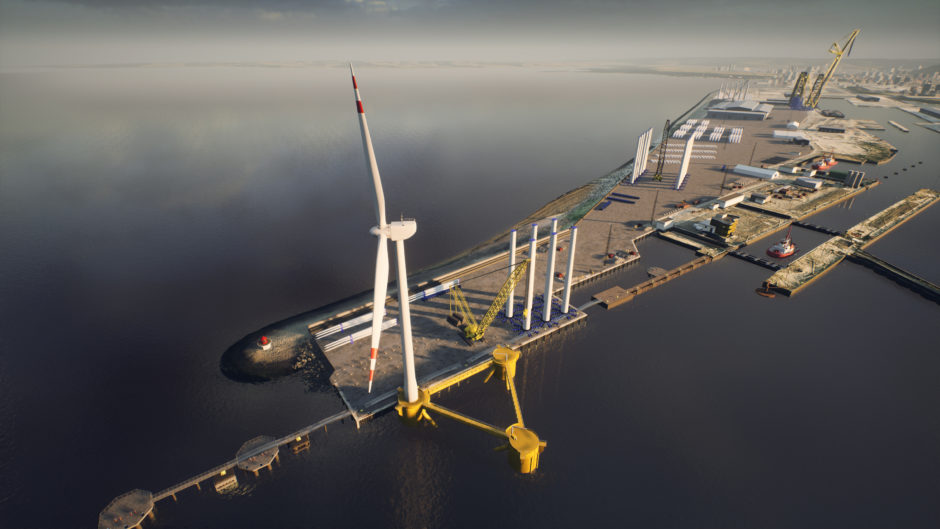
Forth Ports, owner of seven ports on the east coast of Scotland, will submit a “green port” bid to the Scottish Government.
The proposals would encompass key ports, industrial complexes and logistics centres along the north and south shores of the Firth of Forth, including Grangemouth and Port of Leith.
Grangemouth is home to Scotland’s freight hub and a petrochemical cluster while Fort Ports plans to create a £40 million renewable energy hub at Leith.
Fife and the City of Edinburgh are also expected to feature in Forth Ports’ green port bid.
Forth Ports is currently evaluating sites in Fife, along the north shore of the Firth of Forth, from Longannet to Rosyth.
Edinburgh Airport is expected to be included due to its international connectivity benefits.
Each location is “uniquely placed” to deliver on all of the objectives of the proposed Green Ports policy, Forth Ports claimed.
Green ports are the Scottish Government’s spin on freeports, designated zones with lower tax levies and less regulations designed to fuel economic growth in disadvantaged areas.
Read more: Delays to ‘greenport’ process a ‘major threat’ to harbours in Scotland
They will offer “streamlined planning processes” and a package of “customs reliefs”, with a specific focus on net zero and energy transition.
In his March budget, UK Chancellor Rishi Sunak announced the locations of eight new freeports in England, including the Thames and Teesside, which was subsequently announced as the base for GE Renewable Energy’s new blade manufacturing plant.
Forth Ports chief executive Charles Hammond said: “Our interest in creating a Firth of Forth Green Port is underpinned by our belief in the government policy behind it to create economic zones for investment and regeneration and we are committed to supporting the development of this Green Port policy.
“The Firth of Forth, spanning from Central Scotland to the country’s east coast, is the critical engine for Scotland’s economic recovery. The creation of the Firth of Forth Green Port will encourage greater inclusive growth, fair work practices and help deliver Scotland’s net zero economy.
“We are starting to see investment and regeneration benefits since the Thames Freeport announcement earlier this year and we believe it is as important that Scotland’s main industrial and business area sees similar benefits in a similar timescale.
“This would support the transition to net zero and at the same time, create good quality green industrial employment.”
Recommended for you

